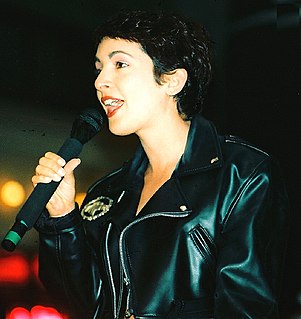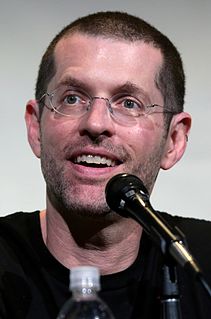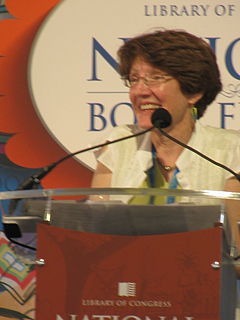A Quote by Rupert Friend
Intrigue is so much more effective. I don't like to be over-prescriptive of an audience. The same with a book or with art - people shouldn't read too much before they explore.
Related Quotes
I didn't really like reading much before I did 'The Golden Compass'. But then my teacher told me to read it. And I thought, 'Oh God, I'm going to have to read a whole book by myself!' It's not that I couldn't read, it's just that I didn't really like books very much. But the book that she lent me I really enjoyed.
Films for TV have to be much closer to the book, mainly because the objective with a TV movie that translates literature is to get the audience, after seeing this version, to pick up the book and read it themselves. My attitude is that TV can never really be any form of art, because it serves audience expectations.
I didn't read many comics as a kid - I've always been a really fast reader, and I would fly through a comic book in a few minutes and be so mad that it ended so quickly. But now that I've been in the business, I tend to look at the panels so much more carefully, and realize that so much of it is about the art; I don't think I got that before.
We know that the elements in play in a show like 'Confederate' are much more raw, much more real, and people come into them much more sensitive and more invested, than they do with a story about a place called 'Westeros,' which none of them had ever heard of before they read the books or watched the show.
You know, I think everybody I've seen has come from some other therapy, and almost invariably it's very much the same thing: the therapist is too disinterested, a little too aloof, a little too inactive. They're not really interested in the person, he doesn't relate to the person. All these things I've written so much about. That's why I've made such a practice really, over and over to hammer home the point of self-revelation and being more of yourself and showing yourself. Every book I write I want to get that in there.
Sometimes I read the same books over and over and over. What's great about books is that the stuff inside doesn't change. People say you can't judge a book by its cover but that's not true because it says right on the cover what's inside. And no matter how many times you read that book the words and pictures don't change. You can open and close books a million times and they stay the same. They look the same. They say the same words. The charts and pictures are the same colors. Books are not like people. Books are safe.
In our time, we have become too interested in the artist and his or her character and experience as a way of understanding art. In my view, you should be able to read a book or see a film without knowing a single thing about conditions or circumstances or character of the artist, and experience the work to the full without such information. Sometimes I feel - speaking for myself - that people know much too much about me, and I wish people knew less and could just read these books and respond to them purely as words on a page.
Because...Beacause it's so good, and there's only one chance to read a book for the first time, and I want it to last. That experience. I'd finish it in a day otherwise, and that'd be like...like eating a carton of ice cream in one sitting. Too much richness over too quickly. This way, I can draw it out. Make the book last longer. Savor it. I have to since they don't come out that often.
I think people are much more concerned about money now. There aren't the big advances of the past. You feel the sense of nervousness about the book industry. It's not like before. Not that I knew very much about what it was like because I was a newcomer to it, but I get that feeling that people are more conservative in their book choices and what they are going to publish and what's a sure sell. As opposed to - just like in the economy - a sense of luxury and sense of risk taking ten years ago.
I don't want to make it sound too much like I'm telling people how to read the book A Thousand Pardons, but what Ben Armstead is doing, he's doing more or less on purpose as a very elaborate way of making a sacrifice in his personal life. He needs to start over. This is how he chooses to do it - by blowing up where he is.




































